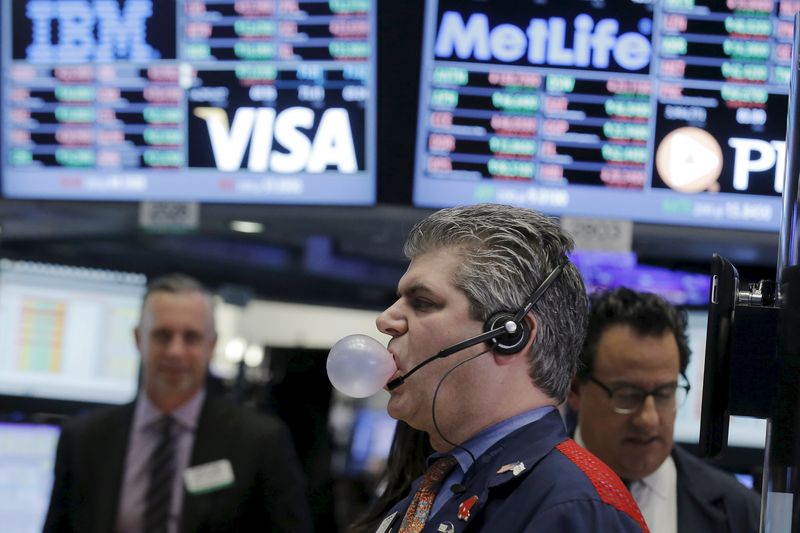By Yasin Ebrahim
Investing.com – Wall Street inched higher on Wednesday as defensive stocks kept the broader market above the flatline amid falling energy stocks and rising U.S.-China tensions.
The Dow Jones Industrial Average rose 0.43%, or 114 points. The S&P 500 gained 0.32%, while the Nasdaq Composite slipped 0.05%.
In a sign that risk appetite is cooling, investors piled into utilities and real estate.
The U.S. government ordered the closure of the Chinese consulate in Houston citing natural security concerns. In response, China reportedly said it was mulling closing U.S. consulate in Wuhan.
The simmering U.S-China tensions added a semblance of caution on Wall Street at a time when the rapid spread of the coronavirus showed little sign of abating.
The number of confirmed U.S. coronavirus cases climbed topped 3.9 million, according to Johns Hopkins data, the most in the world.
The pace of infections has led some states to reverse recent reopening measures, sparking concerns that the U.S. economic recovery could be somewhat timid.
The latest weekly U.S. petroleum data served to highlight cracks in the economic recovery as crude stockpiles unexpectedly rose, renewing worries about the strength of oil demand.
Oil prices fell 1% and dragged energy stocks lower to keep gains in the broader market in check.
Health care stocks received a boost from a jump in shares of Pfizer (NYSE:PFE) and Biontech (NASDAQ:BNTX) - which are jointly developing a potential coronavirus vaccine - having secured a $1.95 billion deal from the U.S. government for 100 million doses of their potential coronavirus drug.
The earnings front offered a mixed picture as a few notable names such as Best Buy and Snap reported contrasting quarterly results.
Snap (NYSE:SNAP) fell 6.3% after its quarterly earnings and revenue beat were overshadowed by signs of slowing user.
Best Buy (NYSE:BBY) jumped 8.6% after the retailer said sales in the second quarter jumped 255% year-over-year, as the company’s strategy to reposition its business paid off. Still, some on Wall Street warned there could be pain ahead for the electronics retailer.
"Best Buy mitigated the negative impact of the pandemic by making rapid adjustments, but trends will be hard to sustain with high unemployment," Wedbush said.
In economic news, the housing market showed little signs of weakness in the wake of rising cases, which have caused some states to roll back reopening measures.
Existing home soared 20.7% in June from the prior month to a seasonally adjusted annual rate of 4.72 million, the biggest monthly increase on record, though that did fall short of economists' forecasts for a 24.5% increase.
